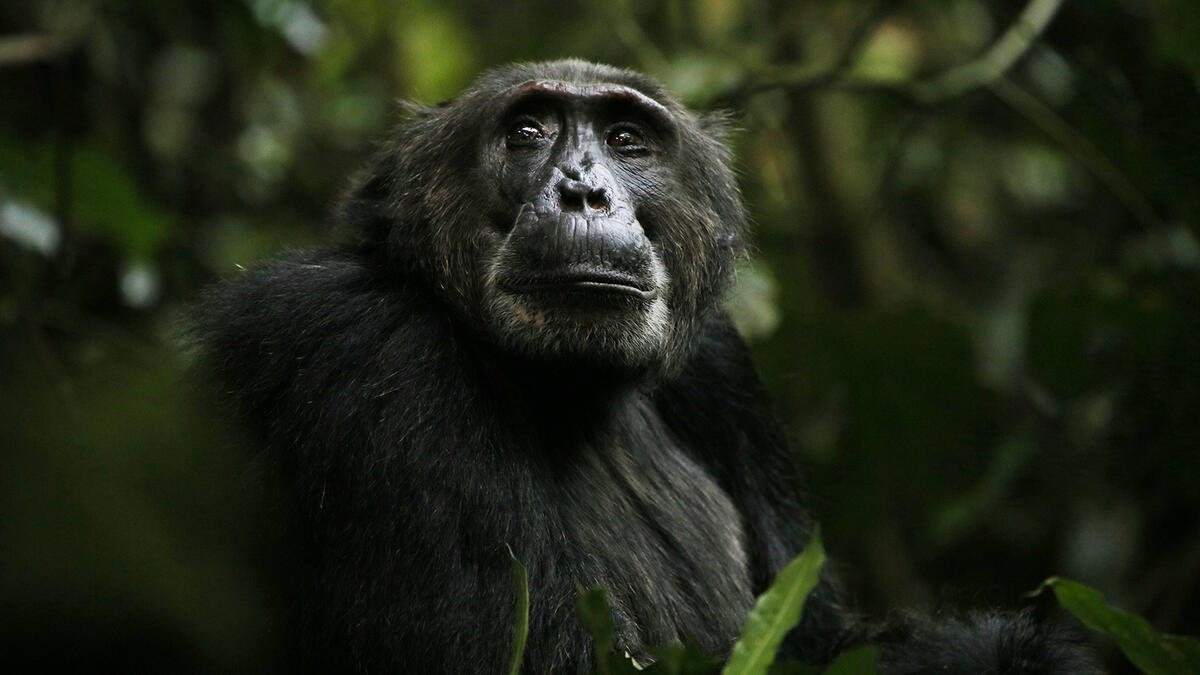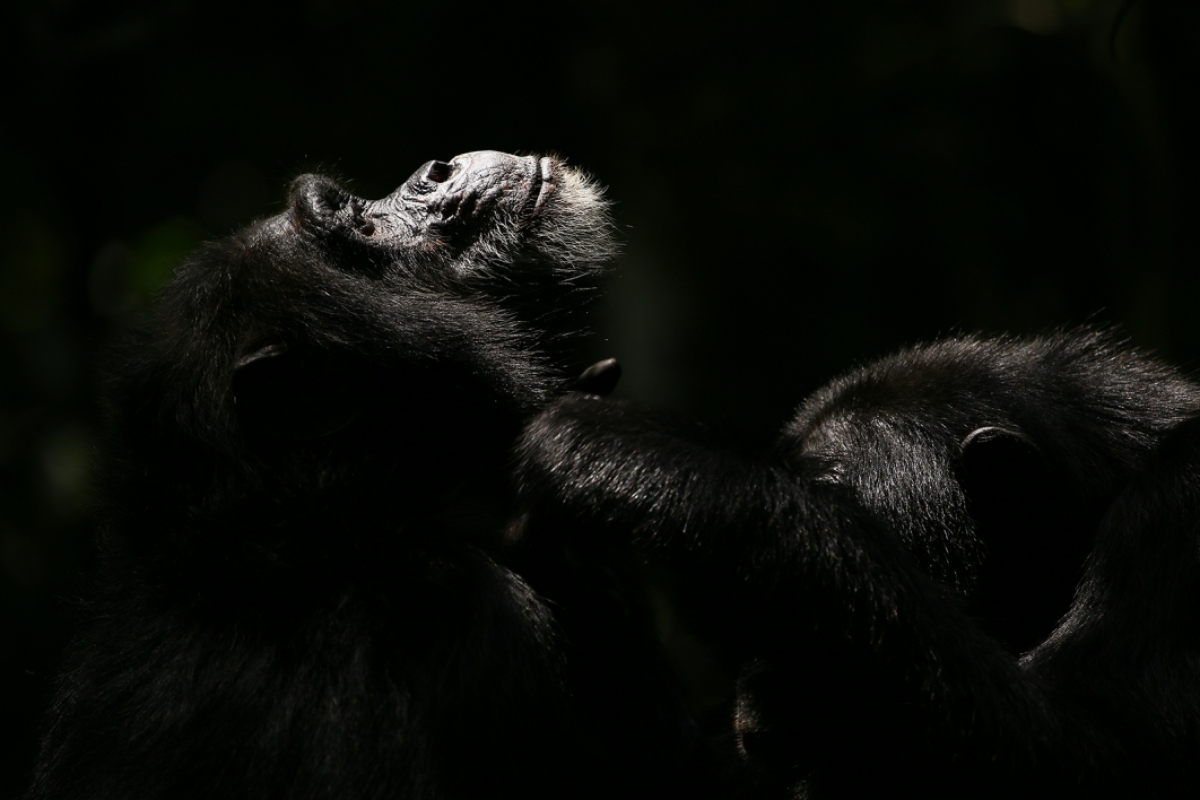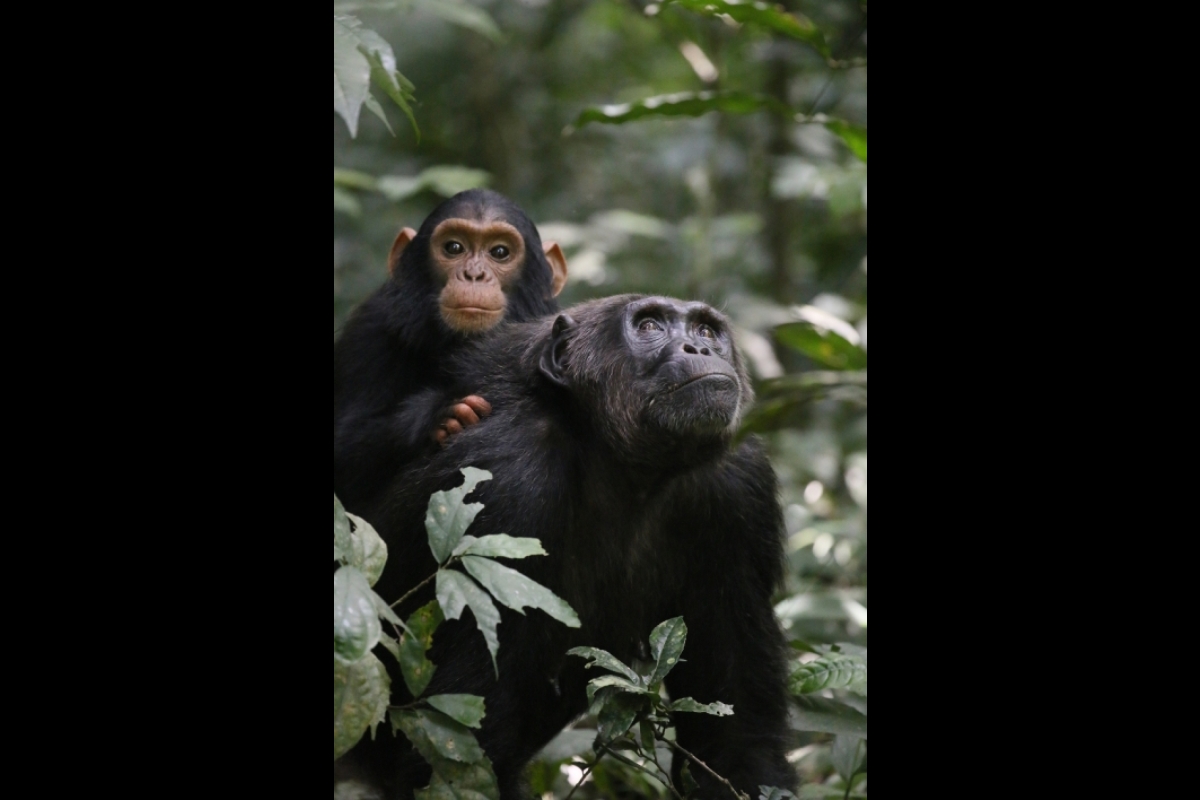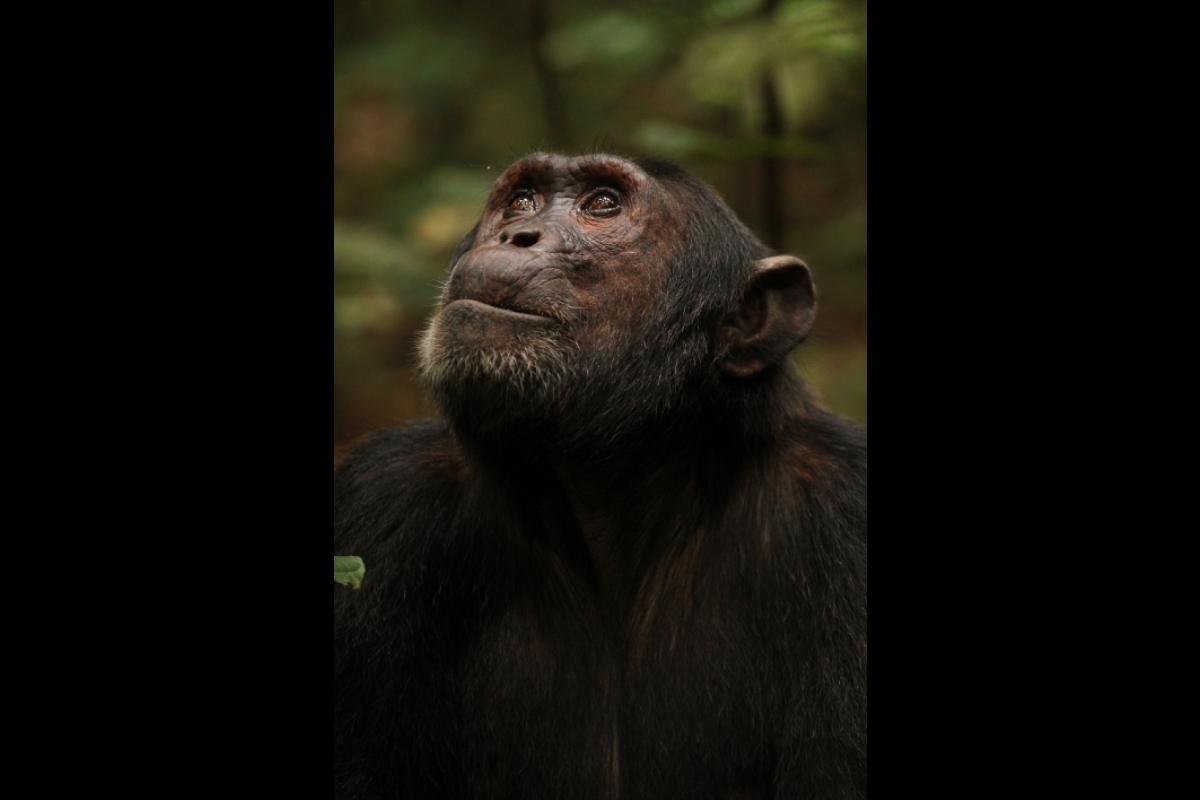'Chimp Empire': ASU professor studies community featured in Netflix series

Miles is the largest chimpanzee ever seen in the Ngogo community. He held the alpha position for many years before he was deposed by his paternal brother, Jackson. Photo courtesy Kevin Langergraber
For more than 20 years, Arizona State University primatologist Kevin Langergraber has studied the Ngogo community of chimpanzees in Kibale National Park, Uganda.
The new Netflix series "Chimp Empire" was filmed about the Ngogo over a one-and-a-half-year period and directed by James Reed, who won the 2021 Best Documentary Feature for "My Octopus Teacher." The show is narrated by fellow Oscar winner Mahershala Ali.
“I think the filmmakers have done an amazing job turning our scientific stories into compelling emotional drama that brings people in,” Langergraber said.
“'Chimp Empire' captures a year of many changes at Ngogo — one previously unified chimpanzee community, the largest ever known, split into two warring factions. And there were dramatic changes in leadership. The film ends contemplating the chimpanzees’ perspective on the events that happened. It speculates that Even Garbo (the oldest chimp at Ngogo) has not seen many years as eventful as this one.
"The filmmakers got incredibly lucky to film the events in the lives of the chimps that they did. It will take us years of scientific research to even attempt to understand the reasons for these events and the consequences they’ll have for the community in the future.”
Langergraber is an associate professor in the School of Human Evolution and Social Change and research scientist with the Institute of Human Origins.
Langergraber hopes the documentary will engage people’s interest in chimpanzees and spur efforts toward supporting their conservation.
“Films like these are important for getting people interested in chimpanzees. But in the end, awareness and appreciation of wildlife isn’t enough to conserve them … it has to result in action,” Langergraber said.
The Ngogo Chimpanzee Project, an nonprofit organization that supports conservation work with anti-poaching patrols and programs to reduce conflict between chimpanzees and humans over crop raiding, is hoping that the publicity generated by the film will result in more direct support. Learn more about the Ngogo Chimpanzee Project on Twitter, Instagram and Facebook.
This is the second documentary focused on this group of chimpanzees. The 2017 Animal Planet documentary "Rise of the Warrior Apes" was told through the view of the scientists who study the chimpanzees, including Langergaber.
More Science and technology

Will this antibiotic work? ASU scientists develop rapid bacterial tests
Bacteria multiply at an astonishing rate, sometimes doubling in number in under four minutes. Imagine a doctor faced with a…

ASU researcher part of team discovering ways to fight drug-resistant bacteria
A new study published in the Science Advances journal featuring Arizona State University researchers has found…

ASU student researchers get early, hands-on experience in engineering research
Using computer science to aid endangered species reintroduction, enhance software engineering education and improve semiconductor…



